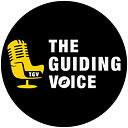The power of “RESPONSIVE” Communication
I still remember the passage that I read in Shiv Khera’s book “You can Win”, where the importance of responsive communication is highlighted. If you want to become number 1, never ever avoid calls from people and promptly get back. Ever since, I make every effort to get back to people when they try to reach out to me through various means. And also I make sure I close the conversation loop say finalizing a transaction or offering help or it could be providing contacts or information literally anything. I am sure people on my network would resonate with my sytle of “responsive communiction”. At times, I might lose track of something, but when I recollect, I immediately get back to people. In rarest of the rarest situations, I might miss completely. If that happened to anyone reading this post, I sincerely regret the inconvenience.
In today’s hyper-connected world, effective communication is more crucial than ever. It’s not just about sharing information; it’s about responsiveness — the art of actively engaging with others, acknowledging their messages, and providing timely feedback. Whether it’s replying to emails, returning phone calls, or following up on social media, responsiveness plays a vital role in nurturing relationships and fostering trust.
In our fast-paced lives, it’s easy to get caught up in a whirlwind of distractions and responsibilities, leading us to overlook the importance of timely responses. However, when we prioritize responsiveness, we convey respect for others’ time and efforts, showing that their input is valued and appreciated. This simple yet powerful gesture can make a significant difference in how others perceive us both personally and professionally.
In the realm of business, responsiveness can be a game-changer. Clients, partners, and colleagues are more likely to trust and rely on someone who promptly addresses their inquiries and concerns. It can lead to better collaboration, increased productivity, and ultimately, enhanced success in your endeavors.
But being responsive goes beyond merely answering messages. It involves setting clear expectations about response times and consistently meeting them. Communicating your availability and preferred methods of contact can prevent misunderstandings and demonstrate your commitment to effective communication.
Furthermore, responsiveness is not limited to professional interactions alone. In our personal lives, it’s equally important to be present and attentive to the needs of our friends and family. Actively listening and promptly responding to their messages can strengthen emotional bonds and reinforce the foundation of healthy relationships.
Embracing the power of responsiveness can lead to a positive ripple effect in all aspects of life. It boosts efficiency, reduces misunderstandings, and fosters a culture of respect and open communication. As you practice responsiveness, you’ll likely find that people are more willing to collaborate with you, support your goals, and reciprocate your attentiveness.
In conclusion, responsiveness is a valuable skill that should not be underestimated. It goes beyond simply replying to messages; it’s about valuing connections and demonstrating care for the people in our lives. By embracing responsive communication in both our personal and professional spheres, we can create a more harmonious and fulfilling existence.
So, the next time you receive a message, ask yourself: “Am I really getting back to people?” Your answer might shape the course of your relationships and ultimately, your life’s journey.
Originally published at https://www.linkedin.com.
